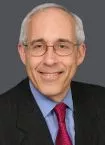In one of the most highly anticipated business cases in years, the Supreme Court heard oral argument on October 9, 2007, in Stoneridge Investment Partners v. Scientific-Atlanta, Inc. Mayer Brown partner Stephen Shapiro argued the case for respondents Scientific-Atlanta, Inc. and Motorola, Inc.
In Stoneridge, the Court will address the extent to which secondary actors—vendors, accountants, lawyers, and others who do business with a public company that engages in fraud—can be liable to the public company’s investors under Section 10(b) of the Securities Exchange Act of 1934 and Rule 10b-5. Under a legal framework developed over the past several years, secondary actors who merely aid and abet a primary violator’s actions are not liable to private plaintiffs, but are subject to enforcement actions brought by the Securities and Exchange Commission and the Department of Justice. Central Bank v. First Interstate Bank, 511 U.S. 164 (1994); 15 U.S.C. § 78t(e).
Attempting to evade this limitation, the plaintiffs’ bar has asserted that secondary actors should be liable to investors if they participate with the public company in a "scheme" to defraud. Endorsing this approach, the Ninth Circuit has held that secondary actors may be liable to private plaintiffs if they engage in conduct with the "principal purpose and effect of creating a false appearance of fact in the furtherance of a scheme to defraud." Simpson v. AOL Time Warner, Inc., 452 F.3d 1040, 1050 (9th Cir. 2006), petition for cert. filed, 75 U.S.L.W. 3236 (Oct. 19, 2006) (No. 06-560). In contrast, the Fifth and Eighth Circuits have held that secondary actors who do not make misstatements to investors are liable for, at most, aiding and abetting, and that claims against them by private plaintiffs are thus barred. Stoneridge addresses this circuit split.
Implications for the Business Community
"Scheme" liability would dramatically expand the scope of Section 10(b)’s implied private cause of action for damages, exposing any supplier or professional doing business with a public company to the risk of class action litigation whenever a public company’s stock price falls. In Stoneridge, for example, the defendant vendors were targeted because they entered into transactions with Charter Communications that Charter accounted for improperly, thereby inflating its cash flow. By pejoratively characterizing these transactions as "deceptive" and part of a scheme to defraud, plaintiff seeks to make the vendors liable to Charter’s investors, though the vendors accounted for the transactions properly themselves and made no statements to Charter shareholders, who were not even aware of the transactions at issue.
Although in previous cases the SEC supported this broader scheme theory of liability, in Stoneridge the United States sided with the vendors, explaining that such uncabined liability was not intended by Congress and would seriously harm American business and the competitiveness of U.S. securities markets. In addition to the United States, the vendors’ position was supported in the Supreme Court by former Chairmen and Commissioners of the SEC, prominent securities professors and lawyers, the Chamber of Commerce, the Securities Industry and Financial Markets Association, the American Institute of Certified Public Accountants, the Attorneys’ Liability Assurance Society, Inc., the NASDAQ Stock Market, Inc., NYSE Euronext, the Business Roundtable, and many other business groups. The Supreme Court is expected to issue its opinion in the next few months.
The vendors’ position in Stoneridge was briefed and argued by members of Mayer Brown’s appellate litigation group based in Chicago, Washington, and Houston. Mayer Brown’s Supreme Court & Appellate practice is the oldest and largest appellate group in the country. Members of the group have argued approximately 200 cases in the Supreme Court and, last term, argued more cases in the Court than any other firm, among them Credit Suisse Securities (USA) LLC v. Billing, 127 S. Ct. 2383 (2007), in which the Court held that investment banks engaged in IPOs are immune from treble damages suits under the antitrust laws.
Copyright © 2007, Mayer Brown LLP and/or Mayer Brown International LLP. This Mayer Brown article provides information and comments on legal issues and developments of interest. The foregoing is not a comprehensive treatment of the subject matter covered and is not intended to provide legal advice. Readers should seek specific legal advice before taking any action with respect to the matters discussed herein.
Mayer Brown is a combination of two limited liability partnerships: one named Mayer Brown LLP, established in Illinois, USA; and one named Mayer Brown International LLP, incorporated in England.


